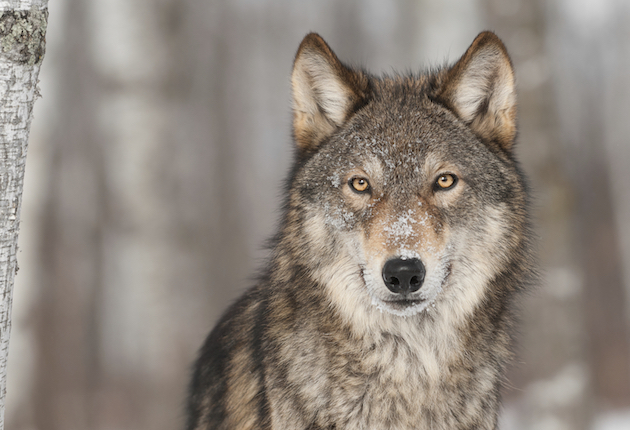By Glen Wunderlich
Earlier this year, Michigan Department of Natural Resources wildlife division officials indicated the size of the state’s wolf population has not changed significantly, since the last survey was conducted in 2014. Admittedly, it cannot state with statistical certainty the validity of the information. A thinking person may wonder about these numbers considering the fact that hunting these apex predators has been outlawed, since December 2014, after a ruling from the U.S. District Court in Washington, D.C. put them back on the Endangered Species List.
In neighboring Wisconsin, where the same protections for wolves exist, empirical evidence suggests quite a different picture. Wisconsin Public Radio reports that a record number of bear hounds being trained for the bear season have been killed by wolves this year and bear season is just beginning!
Wisconsin Department of Natural Resources large carnivore specialist Dave MacFarland said hunters can sign up for wolf depredation alerts through the agency’s website to pinpoint areas where attacks have occurred. Wisconsin is seeing its highest wolf population in recent history with close to 900 wolves in the state and even compensates hunters up to $2500 for dogs killed by wolves. Additionally, another 29 domesticated animals, such as calves, have been killed or injured by wolves this year and farmers are also paid for damages by the state.
So, we’ve gone from state systems that took in revenue from hunters in the form of license fees to control wolves to a system whereby taxpayers – including hunters – are footing the bill for damages to those affected.
Of course, the usual suspects have another approach. In an opinion editorial found in the Wisconsin State Journal published September 12, 2016, an anti-hunter wants the payouts stopped. The writer explains that owners release their dogs to track and chase bears up trees, where the bears easily can be shot, remarking it’s not much of a challenge, which is why most hunters don’t use dogs to tree bears.
But, when has animal-rights zealots approved of any form of hunting based on its level of difficulty, or lack thereof? Never! If hunting is too easy, they bellyache about fairness. Conversely, if hunting is more challenging, they bring into question ethical values based on the fact that animals can be wounded.
Kevin Swanson, wildlife management specialist with the Michigan’s DNR’s Bear and Wolf Program in Marquette said, “If federal protections are removed, Michigan and other involved states would have the ability to manage wolves in a sustainable manner, by utilizing sound scientific principles, as we currently employ with other valuable game species, such as bear and bobcat.”
After the court’s finding, Michigan, Wisconsin, some private groups, and the U.S. Fish and Wildlife Service appealed the decision, filing their initial legal briefs in the case late last year with no timeline given for deliberations.
Legislative efforts in the U.S. Congress have also been underway to try to again delist wolves in the Great Lakes Region.
Meanwhile, insanity rules.



 Hunters are being warned of potential wolf attacks when running dogs this hunting season. (Photo: Holly Kuchera/iStock)
Hunters are being warned of potential wolf attacks when running dogs this hunting season. (Photo: Holly Kuchera/iStock)